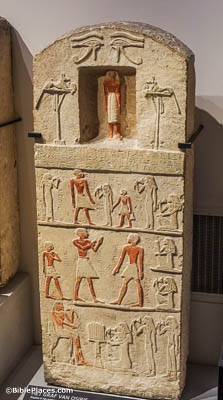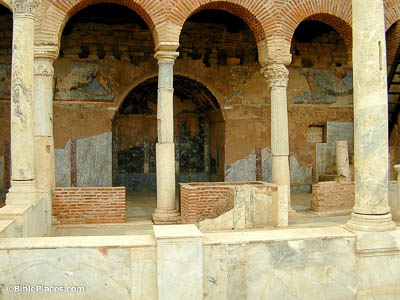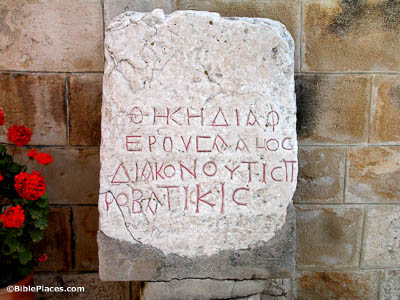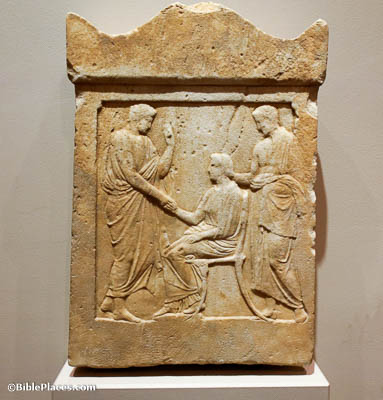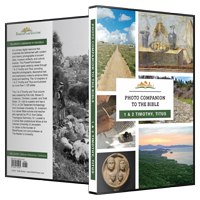If a man seeks the office of overseer, he desires a good work (1 Timothy 3:1).
The word “overseer” (Gk. episkopē) literally means to “look” (scope) ”on” (epi). This concept comes from the office of someone in charge who would watch over a group. The funerary stele pictured here illustrates the literal configuration of this concept with an overseer literally looking over workers from above as they carry out their construction tasks. This concept was extended to the office of “overseer” (also called “shepherd” or ”pastor”, e.g., Eph. 4:11) in the church as one responsible for the congregation, not only to make sure they are carrying out their Christian duties properly, but also to look out for their best interests and protection (cf. Acts 20:28).
